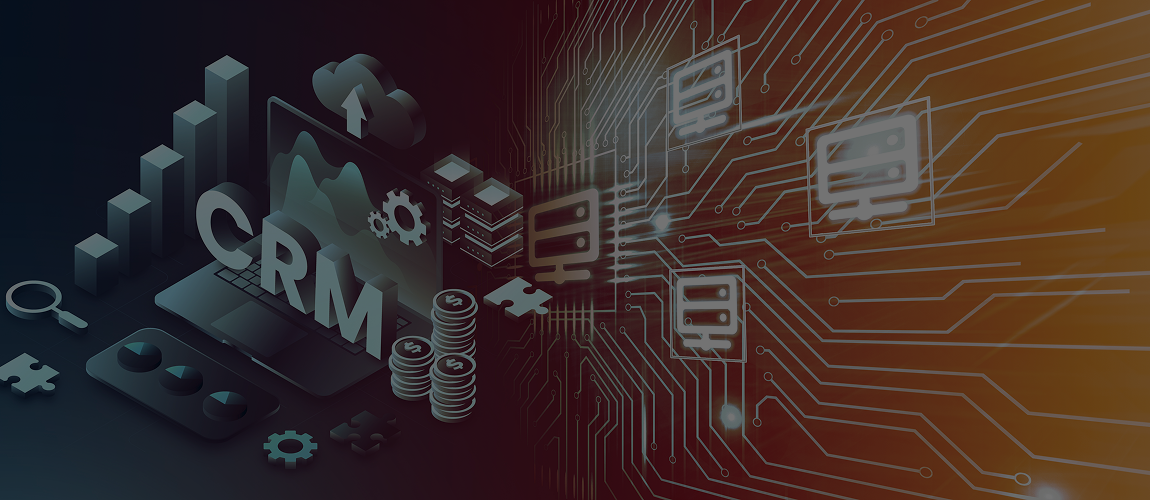Platforms
Solutions
Products
Services
Resources
Company
About Us
Clientele
Events
Careers
Disclosures
Media Kit
Contact Us
SELECT LANGUAGE
Contact Us
Meet us at MWC Barcelona 2026
Platforms
Solutions
Products
Services
Resources
Company
About Us
Clientele
Events
Careers
Disclosures
Media Kit
Contact Us
SELECT LANGUAGE
Contact Us
 Resource
Resource/ Blogs

The convergence of Internet of Things (IoT) and Artificial Intelligence (AI) is fundamentally reshaping how businesses connect with customers. With IoT devices projected to grow from 15.9 billion in 2023 to over 32.1 billion by 20301, major industries including utilities, retail, transportation, and government are leading this transformation. In this new era, organisations must reimagine their CRM systems to handle massive data volumes, ensure security compliance, and create adaptive ecosystems that anticipate customer needs in real-time.
Customer Information
The cornerstone of IoT-integrated CRM is its ability to capture and analyse comprehensive customer information through connected devices. This information encompasses number of smart devices a customer has subscribed to. A robust IoT-integrated CRM will accumulate all this information and transform it into meaningful insights.
For example:
In a B2B scenario, smart building management companies can capture information like power consumption patterns and solar panels performance. AI integration provides predictive insights for maintenance and optimisation.
The modern IoT-integrated CRM requires a dynamic product catalogue supporting IoT services, plans, and packages, with the capability of bundling this IoT products and services with traditional telco data plans. CRM systems integrated with IoT data can track usage patterns and suggest products or services that align with customer needs through AI-based algorithms.
Efficient management of the lifecycle of IoT based devices and inventories including CCTVs, cameras, sensors, wearable devices and other IoT-based equipment is crucial. The sales inventory module should generate device inventories and manage status values such as active, inactive, allocated, and switched off.
The IoT-integrated CRM should run specific campaigns to attract new customers and reward them for using the services. For example: A smart home company monitors how customers’ use their connected devices (e.g., smart lights, thermostats, or security cameras). When software updates are pending, the CRM can trigger an automated email campaign encouraging them to upgrade their devices or to register for an AMC contract.
IoT devices collect vast amounts of sensitive and personal information. Due to the enormous volume, this data is generally stored in IoT data warehouses or data lakes which the CRM system can integrate to provide intelligent data analysis. Crucially, it’s crucial to handle and store this data securely and to abide by regulatory and data privacy laws of each country, such as GDPR in the European region and ACMA in Australian region.
Modern IoT-integrated CRM platforms require scalable architecture leveraging:
With multiple edge devices in an IoT ecosystem such as sensors, smart devices, and machines, the IoT Gateway becomes extremely crucial to bridge the gap between the edge devices and CRM systems.
IoT device monitoring through a CRM system enables businesses to manage and track the performance, status, and health of connected devices in real time. This allows CRM systems to trigger proactive customer support actions, such as sending alerts or maintenance notifications.
Consider a company that provides agricultural equipment like drones, sensors, irrigation systems and advisory services to farmers.
The system enables:
Managing High Data Volumes: Processing and analysing massive data requires robust infrastructure.
The fusion of IoT and CRM systems provides businesses with unparalleled opportunities for personalised customer engagement. Industry leaders like Salesforce IoT Cloud, Microsoft Dynamics 365 IoT, and SAP Customer Experience are enabling organisations to integrate IoT data for actionable insights and enhanced customer experiences.
Ready to revolutionise your customer relationships with IoT-integrated CRM solutions? Contact our IoT solutions team at reachus@covalensedigital.com to discuss your requirements.
Author
Pruthvee brings over 20 years of expertise in the telecom industry and currently leads the Solution Engineering team at Covalense Digital. He specialises in crafting innovative solutions around next-gen telecom technologies, including Digital BSS, IoT, Artificial Intelligence, and Marketplace solutions. A recognised speaker at industry forums, he is passionate about sharing insights through blogs and whitepapers on emerging telecom trends.